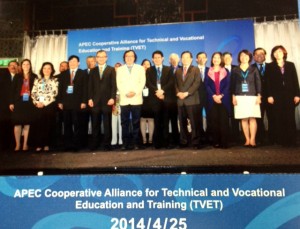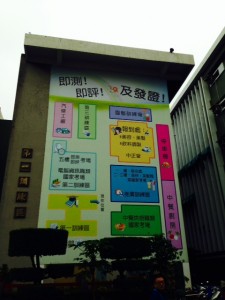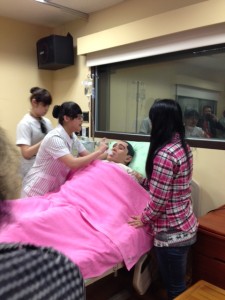
Below is a a guest blog from one of our partner sponsors, Kuder, Inc. They will share information on their upcoming sessions at Achieving Excellence in CTE: The National Career Clusters Institute.
The 2014 Achieving Excellence Institute theme is “Achieving Excellence in CTE: The National Career Clusters Institute.†How exactly can we do that, you might ask? Connect with Kuder, Inc. during the conference to find out.
Kuder’s approach to achieving excellence is personalized and customized, one user at a time. With over 75 years of research that proves our evidence-based solutions make a positive impact on lifelong learning, development, and achievement, we are confident we can make reaching excellence an easier climb for you, your organization, and the students/clients for which you serve.
The following Kuder activities will not only provide you with innovative career development strategies, they will show you how to achieve new points of excellence in your school, district, or organization:
- Pre-conference session: “Purpose-Driven Career Development: Implementing a Model that Works,†on June 15, 2014, from 1:00-4:30 p.m. in Grande Ballroom D (Note: You may register in advance by calling 301-588-9630 or once onsite, pre-registration is not required).
- “Adding the “WOW†factor into your CTE program,†on June 17, 2014, at 1:30 p.m. in Courtroom O.
- Grab information about Kuder from our sponsor’s table.
We look forward to meeting you in June! Reach out to us before and during the event on Facebook or Twitter using #CCI2014.
Sincerely, The Kuder Team
Ramona Schescke, Member Services Manager







 On the second day of my trip, I had the opportunity to visit two models of technical institutions, the Chinese Culture and Social Welfare Foundation Vocational Training Center (CVTC) and Chung Gang University of Science and Technology (CGUST). CVTC is a privately-run, publicly-subsidized institution that provides training (ranging from 300-900 hours) to unemployed individuals in areas such as culinary arts, gardening/landscaping, webpage design and computer maintenance.  CVTC is one of 13 public training centers in Taiwan – and was the first training center established over 50 years ago. Like most other training centers in Taiwan and the other Asian countries represented at this conference, CVTC provides on-site certifications. (See a map of their campus to the right)
On the second day of my trip, I had the opportunity to visit two models of technical institutions, the Chinese Culture and Social Welfare Foundation Vocational Training Center (CVTC) and Chung Gang University of Science and Technology (CGUST). CVTC is a privately-run, publicly-subsidized institution that provides training (ranging from 300-900 hours) to unemployed individuals in areas such as culinary arts, gardening/landscaping, webpage design and computer maintenance.  CVTC is one of 13 public training centers in Taiwan – and was the first training center established over 50 years ago. Like most other training centers in Taiwan and the other Asian countries represented at this conference, CVTC provides on-site certifications. (See a map of their campus to the right) CGUST, on the other hand, is a private four-year institution that provides training for health care professionals through its College of Nursing and College of Human Ecology. This campus features state-of-the-art simulation equipment, an on-site kindergarten class run by students and staffed by nurses (who also happen to be instructors), and one of the highest placement rates for its graduates.  All students participate in professional internships during summer breaks and about 87% pass their professional certification, which is twice Taiwan’s national average.
CGUST, on the other hand, is a private four-year institution that provides training for health care professionals through its College of Nursing and College of Human Ecology. This campus features state-of-the-art simulation equipment, an on-site kindergarten class run by students and staffed by nurses (who also happen to be instructors), and one of the highest placement rates for its graduates.  All students participate in professional internships during summer breaks and about 87% pass their professional certification, which is twice Taiwan’s national average.